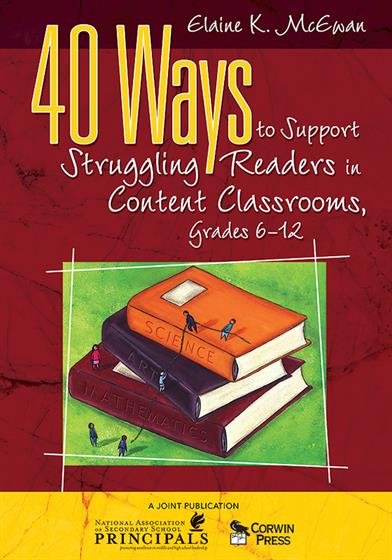Hands-on, Practical Guidance for Educators
From math,
literacy, science, equity, multilingual learners, and SEL, to assessment, school counseling,
and education leadership, our books are research-based and authored by experts
on topics most relevant to what educators are facing today.

Bestseller!
40 Ways to Support Struggling Readers in Content Classrooms, Grades 6-12
Help for students who are overwhelmed, feel confused, can't remember, lack language skills, or just don't get it.
In today's era of accountability, teachers are expected to help all secondary students understand complex concepts and ideas and demonstrate proficiency on high-stakes tests. To promote success for struggling readers, Elaine McEwan offers teachers 40 research-based and classroom-tested methods, each featuring:
- An intriguing quotation or definition to grab your attention
- A brief description of the method and suggestions for implementation
- Recommended resources to gain a more in-depth understanding of the method
- Research citations to demonstrate the power of the method to get results
Product Details
- Grade Level: 6-12
- ISBN: 9781412952064
- Published By: Corwin
- Year: 2007
- Page Count: 200
- Publication date: May 01, 2007
Review Copies
This book is not available as a review copy.

